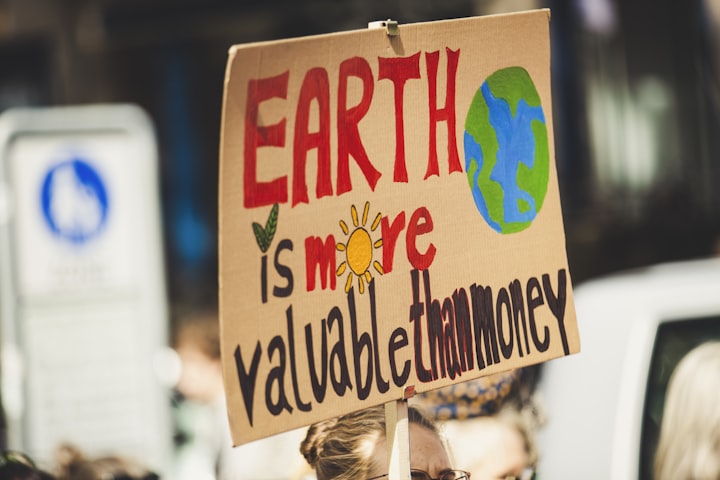Emotional Climate Changes
Navigating the Depths of Our Feelings in the Face of Environmental Crisis

Climate change, an undeniable reality of our time, not only presents significant physical and environmental challenges but also stirs a whirlwind of emotions within us. From fear and grief to hope and determination, the emotional landscape surrounding climate change is complex and deeply intertwined with our collective and individual experiences. In this exploration, we delve into the emotional climate changes, highlighting the range of feelings it elicits, the impacts on our well-being, and the ways in which we can navigate these emotions to foster positive action.
Fear and Anxiety:
Climate change instills fear and anxiety within us as we grapple with the uncertainty of its consequences. The looming threat of extreme weather events, rising sea levels, and the disruption of ecosystems trigger a deep-seated fear for our safety, the well-being of future generations, and the world we call home. These emotions can be paralyzing, leaving individuals overwhelmed and uncertain about the best course of action.
Grief and Loss:
As climate change wreaks havoc on our planet, we mourn the loss of natural landscapes, biodiversity, and ecosystems that once flourished. Witnessing the destruction caused by wildfires, deforestation, and the extinction of species evokes profound grief. The sorrow we experience stems from recognizing the irrevocable damage inflicted upon our planet, lamenting the loss of precious natural wonders, and mourning the potential irreversibility of these losses.
Anger and Frustration:
The slow pace of action and the lack of sufficient policies to combat climate change often evoke anger and frustration. We direct our ire at governments, industries, and individuals whose actions contribute to environmental degradation. The disregard for sustainable practices and the prioritization of short-term gains over long-term well-being fuels our frustration. The urgent need for change can intensify these emotions as we witness the impact of political inertia and resistance to transformative actions.
Hope and Inspiration:
Amidst the challenges, stories of resilience, innovation, and sustainable practices offer rays of hope. The growing renewable energy sector, grassroots movements advocating for change, and individuals taking positive actions inspire and motivate us. The emergence of collaborative efforts, technological advancements, and shifting societal values rekindle the hope that we can address climate change effectively.
Helplessness and Despair:
The overwhelming nature of climate change can leave individuals feeling helpless and trapped in despair. The magnitude of the issue, coupled with the perception that individual actions may not make a substantial difference, can lead to a sense of powerlessness. It is essential to acknowledge these emotions and find ways to transform them into proactive engagement and collective action.
Solidarity and Empathy:
Climate change affects communities worldwide, often exacerbating existing social and economic inequalities. The realization of the disproportionate impact on marginalized communities can evoke empathy and solidarity. By fostering understanding and supporting those most vulnerable to climate change, we can build resilience, advocate for justice, and forge connections that transcend borders.
Moral and Ethical Dilemmas:
Climate change raises profound moral and ethical questions. We grapple with the responsibility we bear toward future generations, other species, and the planet as a whole. Conversations about resource distribution, environmental justice, and sustainable development prompt us to examine our values and question the choices we make as individuals and societies.
Determination and Resilience:
In the face of the emotional whirlwind, determination and resilience emerge as vital sources of strength. Climate activists, scientists, policymakers, and individuals around the world demonstrate unwavering commitment to forging a sustainable future. Their resilience in the face of adversity and their determination to effect change inspire others to join the cause.
Conclusion:
The emotional climate changes surrounding climate change are as varied as the impacts it has on our planet. By acknowledging and understanding these emotions, we can harness them as catalysts for positive action. Empathy, hope, and resilience can unite us in the fight against climate change, as we strive to build a sustainable future that preserves our planet for generations to come. Together, we can navigate the depths of our feelings, transform them into transformative actions, and shape a world where emotions of fear and grief are eclipsed by hope, determination, and the triumph of collective effort.






Comments
There are no comments for this story
Be the first to respond and start the conversation.